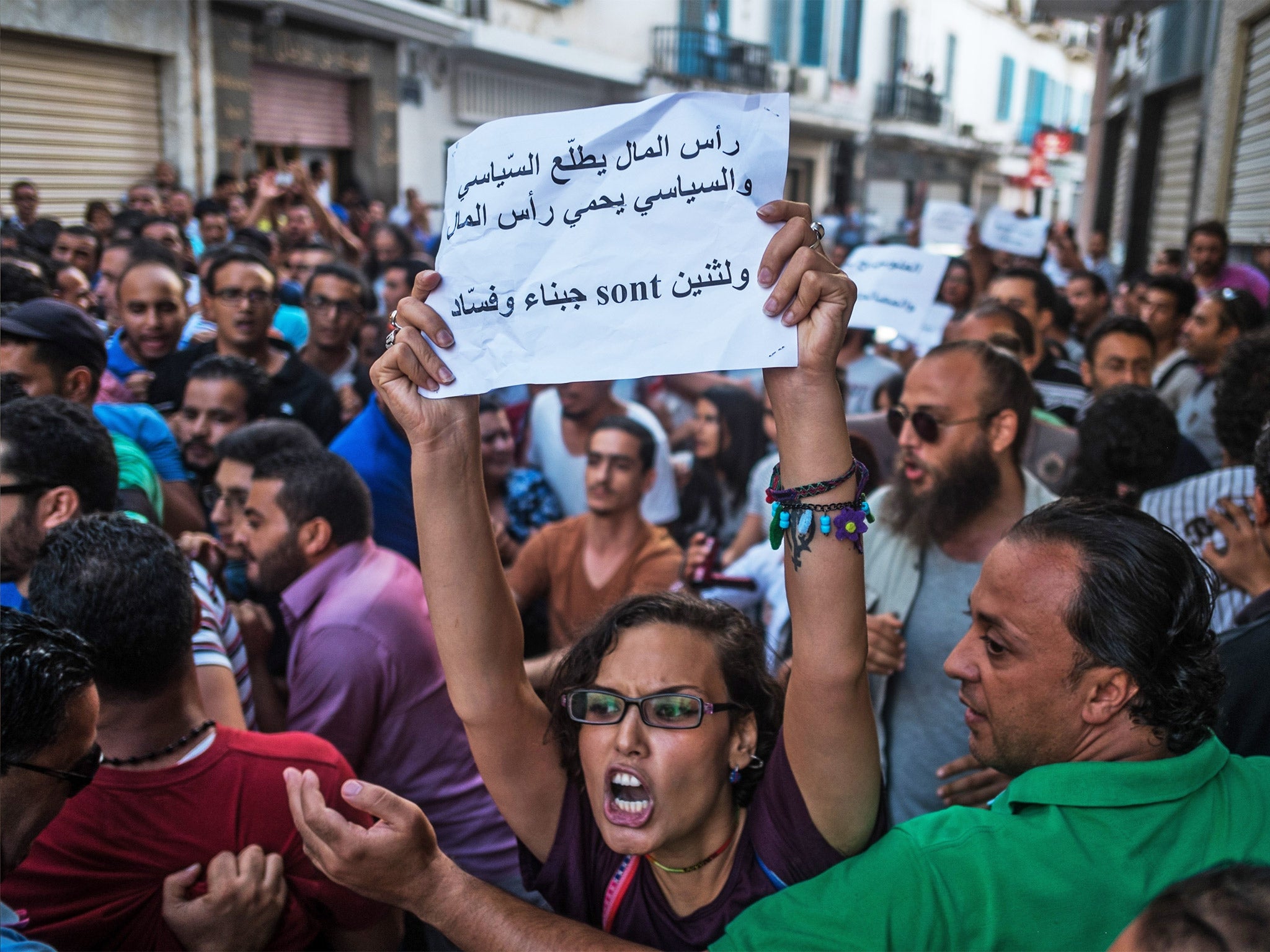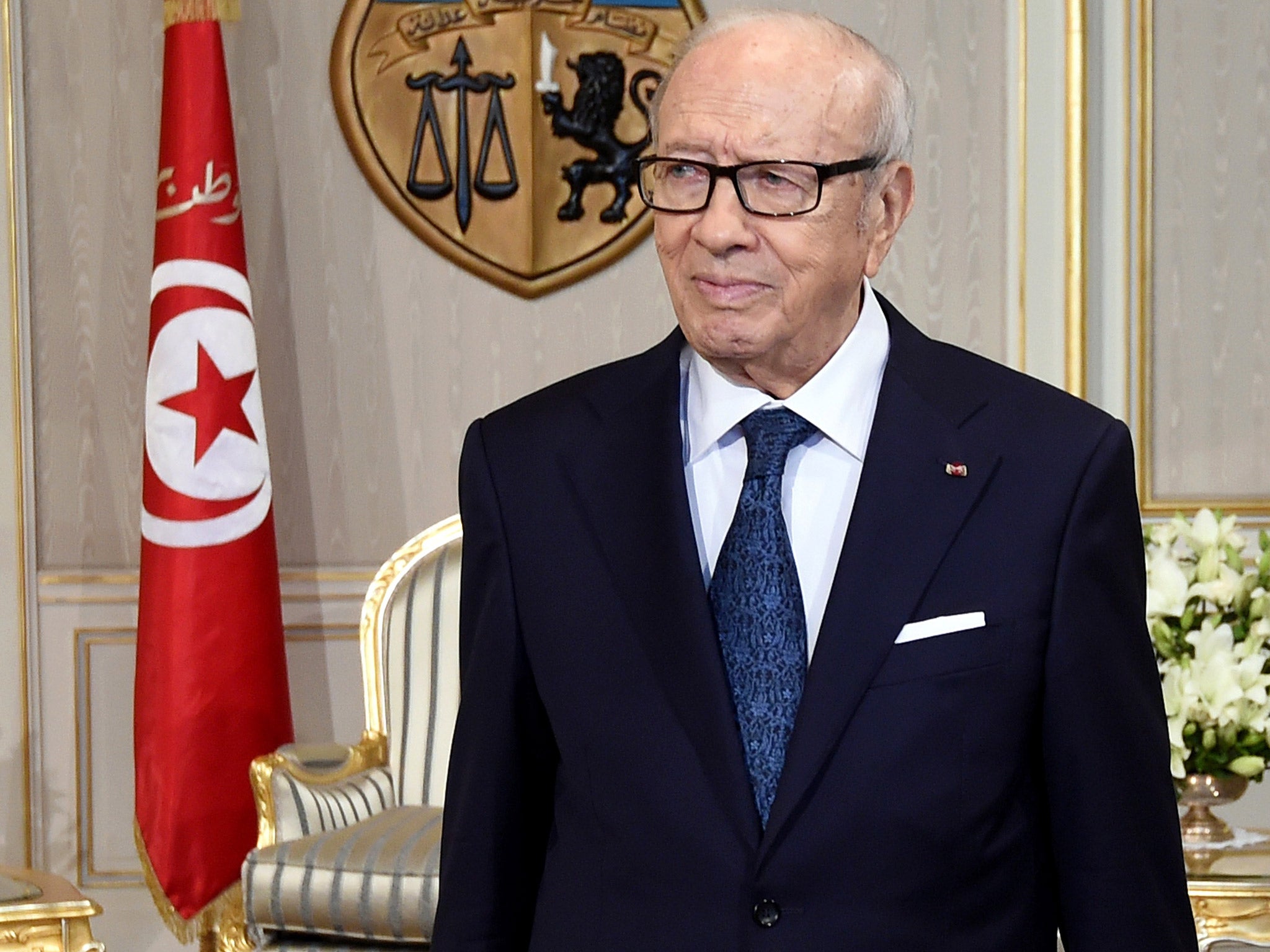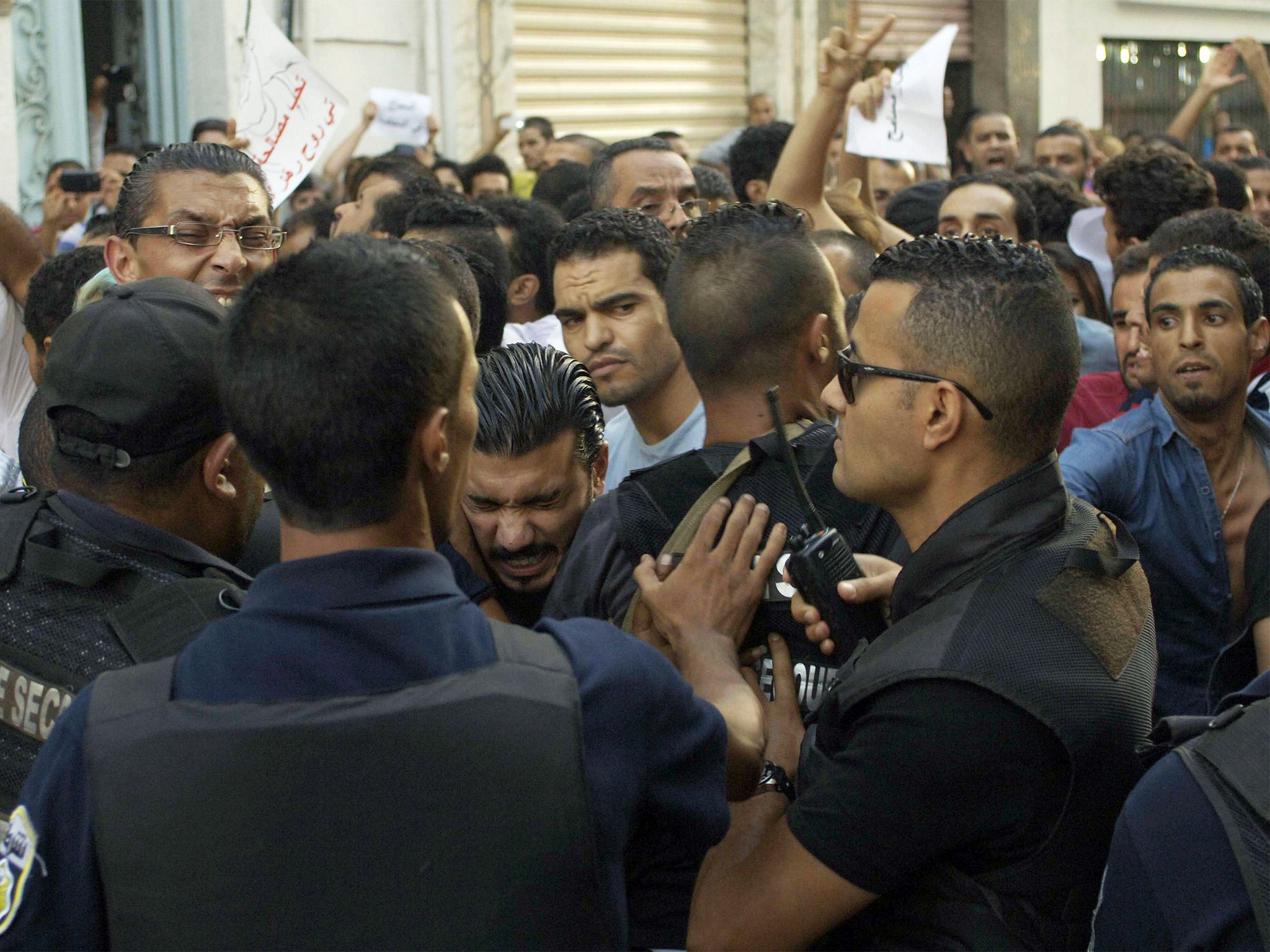Tunisia fears its Arab Spring could be reversed as the new regime becomes as intolerant of dissent as its predecessor
During a protest this week, many denounced a proposed law which they say will whitewash the counrty's most corrupt businessmen and public officials

The crowd does not get far. In Tunisia, the birthplace of the Arab Spring, authorities are increasingly disdainful of dissent.
“There are many thieves in Tunisia and we are sick of it,” says Nawres Daboussi, 19, surrounded by police in the courtyard outside the headquarters of the Tunisian General Labour Union in Tunis. “This law is really ridiculous; it makes a mockery of the fact that we had a revolution in the first place,” the student adds, before going back to join her fellow protesters. “Resistance, resistance, no reconciliation!” they chant, pressing up against the police barrier.
Tunisia was once widely hailed as the only success story of the Arab Spring. On 14 January 2011, its President Zine el-Abidine Ben Ali fled the country and the police became the targets of widespread anger. Since then, however, the government that was elected in late 2014 includes many figures from the old regime. And there are growing signs that old habits are creeping back.
Indeed, during the protest outside the Labour Union on Tuesday night many denounced a proposed law which they say will whitewash Tunisia’s most corrupt businessmen and public officials. “No fear, no fear, the people own the streets,” the crowd chanted.
Ever since the uprising, Tunisia has experienced sit-ins and strikes among virtually every profession and social group – the unemployed, lawyers, teachers, hospital workers, and even security forces. Tunisia’s Truth and Dignity Commission, an independent body charged with the weighty mission of investigating human rights violations and financial crimes committed since independence, was supposed to begin public hearings this summer. Surrounded by fierce controversy, funding issues and internal wrangling, the hearings have been delayed.

They were due to include economic and financial crimes. But in July, President Beji Caid Essebsi presented a law that would change that process. And as the debate over the reconciliation law continues, questions hang over whether a significant part of its mandate will be taken away. President Essebsi has said the law is needed to revive the economy, and to “turn the page on the past”. Many of the country’s most powerful businessmen stand accused of serious economic crimes, and are therefore, he argued, too afraid to invest in the country.
Under the draft law, which may yet be modified before it is introduced to parliament, businessmen who profited from corruption or fraud will be granted amnesty in return for agreeing to pay back any money stolen from the public purse. President Essebsi’s counsellors say the amnesty is also the most productive way to resolve the issue of rampant tax evasion among many of the country’s most elite families.
But for Abdessattar Ben Moussa, president of the Tunisian Human Rights League, the law is unconstitutional and should be withdrawn completely.
“It’s against the constitution. It’s against the law and it’s against the revolution.”
In the wake of two horrific attacks on foreign tourists earlier this year, the Tunisian parliament quickly passed anti-terrorist legislation, widely condemned by rights activists. And the President introduced a state of emergency, banning all protests and strikes. It will remain in place until at least 2 October. In a clear sign of the return of old habits, organisers of Tuesday’s protest found themselves singled out by police, for violence and arrest. Wael Nouar, one of the organisers, had to be taken to hospital after he was beaten by police.
“It was completely unprovoked. I was standing alone and three policemen came up and attacked me,” he says. “Another policeman even tried to stop them but they continued.”

Mr Nouar, secretary-general of the Tunisia’s General Student Union, says his lawyer is filling a complaint against the police. “They were targeting those of us who organised it,” he says.
While the initial protest was tolerated, when small groups tried to continue the demonstration on Habib Bourguiba Avenue, police promptly began arrests. When The Independent tried to photograph a young woman being taken away, police were quick to shield the events.
Twelve people were detained, though they were released around an hour later following intervention by leftist MPs. “Tunisia is seen in the region as a laboratory, where the transition from dictatorship to [democracy] is, perhaps, the most possible,” says Sihem Ben Sedrine, president of the Truth and Dignity Commission. “There are many people hostile to transitional justice. Democracy doesn’t work in their interests, so it’s normal that they don’t agree,” Mr Ben Sedrine explained.
But the crowd that turned out on Tuesday is determined to use the street to express its opposition over the reconciliation law, due to be debated by parliament in the coming weeks. Mr Ben Moussa, who is the former president of the Bar, says that while he favours reconciliation, President Essesbsi did not consult widely with civil society, and that this marks the executive trying to take control of the process.
In spite of the crackdown, organisers say the next protest against the reconciliation law is going ahead this afternoon, outside the Municipal Theatre in the heart of the capital, Tunis, as well as in other towns.
“We will never let this law go through, because it would mark an end to the revolutionary process,” says Mr Nouar.
Join our commenting forum
Join thought-provoking conversations, follow other Independent readers and see their replies
Comments